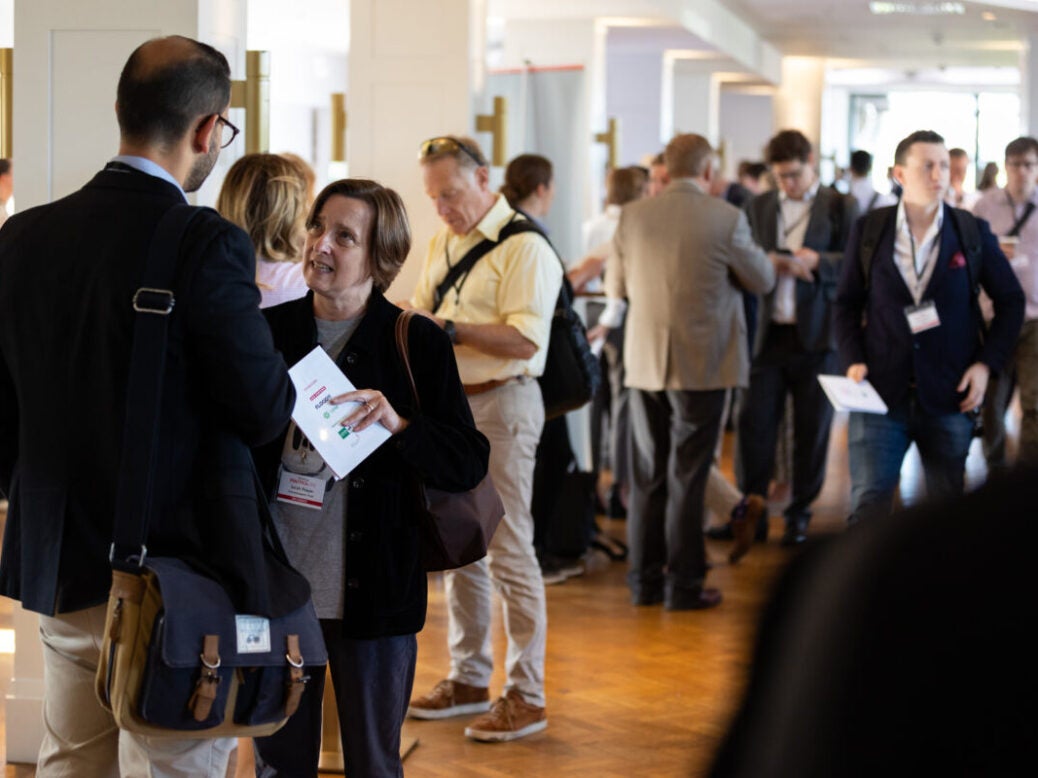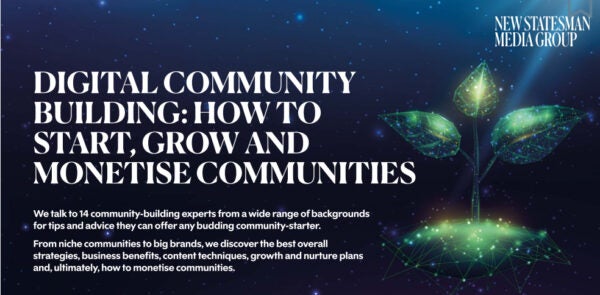
Independent advisory firm Oxford Economics recently revealed that executives believe they would lose 28% of their business if they stopped networking.
For many, in-person networking at events is a hugely important source of new business and lead generation.
Former managing director of Porsche and BMW, Kevin Gaskell, concurs: “Networking is crucial for business leaders, because it provides the perfect opportunity to introduce your brand to potential prospects and contacts and also a time to find out about theirs.”
We approached experts in the field to share their tips and advice on making the most of networking.
‘By failing to prepare, you are preparing to fail’
He may be responsible for the lightning rod and bifocals, but one of Benjamin Franklin’s most famous quotes is also applicable when it comes to networking excellence.
Event schedules will be drawn up well in advance, so details of delegates, speakers and advertisers can be researched ahead of time.
“When attending a networking event, preparation is key. Do your homework beforehand on the delegates – whether that’s checking the event website for the speaker panel, asking the organisers for a registration list or looking on social media for attendees.
“Pick the top three people you’d like to connect with, send them an introductory message, making it clear why you think it would be good for them to say hello to you. Research the contact before the conversation,” advises Anna Heyes, CEO at Active Profile, an integrated communications and marketing agency.
Tom James, communications manager at comparison website NerdWallet, agrees: “Preparation is an essential part of getting the most out of any networking event. If you know what discussion points are on the agenda, you can read up on these areas and be ready to give your insight, or prepare questions to ask fellow attendees.
“Also, if you can see who is attending the event in advance – be they guest speakers or general attendees – you can prepare tailored questions around an individual’s expertise and interests. Company bios, articles and professional social media sites (such as Linkedin and Twitter) are great places to find out more about a person, brand or subject matter. By preparing and knowing what to say prior to attending a networking event, you have a greater chance of striking up meaningful conversations and leaving a lasting impression.”
Read more: Increasing event registrations: Tips and advice
‘You have no compassion for my poor nerves’
If Pride and Prejudice’s Elizabeth Bennet can suffer from nerves, then one can forgive your average delegate for feeling the same.
The concept of excellence at event networking centres on the free and easy ability to talk to strangers, so nerves or awkwardness need to be circumnavigated.
Marketing manager for party planner Fizzbox, Tom Bourlet, reminds us that most people will feel the same way.
“It can be scary approaching people, but they’re in the same boat as you and are looking to network as well, so don’t hesitate in speaking to others; they’ll probably be grateful you made the first move.
“I strongly believe how you start sets you off for the event. If you go up to someone almost straight away and start a conversation, then your nerves disappear and you feel more confident. If you back out, then your nerves rise and you avoid starting conversations from that point,” says Bourlet.
Alicia Currie, event expert at Escapologic, adds: “One of my main rules when it comes to business events is: always get stuck in. It might seem like the comfortable and safe option to hang by the back and wait for people to fire up a conversation with you, but this doesn’t really benefit you in any way, and prevents you from making connections with various important people.
“Even if you’re not the most outgoing person normally, at a business event you have to be in order to network successfully and make long-lasting connections with people that you will probably work with in the future.”
 FREE REPORT: DIGITAL COMMUNITY BUILDING
FREE REPORT: DIGITAL COMMUNITY BUILDING
We talked to 14 community-building experts from a wide range of backgrounds for tips and advice they can offer any budding community-starter.
‘Words are, of course, the most powerful drug used by mankind’
Novelist and poet Rudyard Kipling was famous for his choice of words, and simple techniques can help event attendees make the most of brief chances to network.
These linguistic tricks can be summarised by coach and therapist Danielle Baron: “When saying your name, pause after ‘My name is’. Then another small pause between your first name and surname. This allows the person to really hear your name and take it in. In addition, start questions with ‘who, what, why, when and how’. These allow the recipient to respond and elaborate with more detail. ‘Can you?’, ‘Should you?’ questions are closed and only require a yes or no answer.”
Following introductory words, empathy mapping comes into play according to Luciana Andreoni, managing partner of training and coaching business True & North.
“Stop swapping boring professional stories and start connecting on a deeper level. Empathy is the social glue that engages people and makes us trustworthy. At the most basic level, relating to, or understanding others’ challenges and motivations is bound to make us more relevant in another’s eyes.
“But it also shows we care: It allows us to connect on a human level. In all human interactions, we’re subconsciously really only asking two questions: Can I trust this person? And do they understand my needs? And yet the fundamental mistake business people make is trying to connect on the purely professional level.
“We try to understand the other person’s industry, their competitors, their objectives – but we don’t see them as individuals. Yet who they are as a person has a far bigger bearing on a business outcome.”
‘Diligent follow-up will set you apart from the crowd’
The thoughts of leadership guru and author John C Maxwell are heeded by many experts in the event networking field, and for good reason.
To ensure an immediate relationship is continued and translates into business, following up is possibly the most important aspect of networking.
“If you meet someone new at an event, it’s a good idea to follow up with them afterwards. Even if it’s just a quick email to say how nice it was to meet them. I can firmly say I have never received a negative response from reaching out to a fellow attendee post-event. Even with leaders I have always admired who I thought would never have the additional time to further interact or support.
“Just think, what’s the worst that can happen?” argues Amy Ramage, founder, MD and creative director at Célibataire.
Luxury travel and adventure blogger Jessie Moore details the level of attention needed to follow-up effectively.
“My biggest piece of advice for networking at events is to make notes as you go along. When meeting and chatting with new people, there can be an overwhelming amount of information to remember, from names and job titles to personal anecdotes and current projects. I find it incredibly helpful to make quick notes after chatting with new people, noting their name, job title and any personal snippets of information they shared.
“This information can then be useful when following up with people. Often people are so focused on sharing information about themselves and selling their own ideas at events they forget to actively listen to other people. If you can show that you remember the small details of your conversation, then you’ll stand out.”
The last word goes to solicitor turned legal PR specialist Victoria Moffatt with a more prosaic viewpoint of successful event networking.
“Networking gets a bad name, when in fact, it’s simply building relationships. At an event, the best networkers are those who simply have conversations with people, listen to what they have to say, and build relationships.
“The worst are those who ‘work the room’, don’t listen, bore people and hand out as many business cards as possible.
“Of course, most people at a networking event are there to do business, so it’s perfectly fine to have a nice conversation with somebody and politely move on.”
Email pged@pressgazette.co.uk to point out mistakes, provide story tips or send in a letter for publication on our "Letters Page" blog
